Evaluating Ketogenic Diet for Footballers: Nutrition for Performance
VerifiedAdded on 2022/08/08
|9
|749
|17
Presentation
AI Summary
This presentation examines the ketogenic diet, a low-carbohydrate, high-fat eating plan, and its application to football players. It begins by defining the ketogenic diet, detailing the types of foods included, and discussing its popularity for weight loss. The presentation then explores the principles of bodybuilding, emphasizing the role of resistance exercises and diet in muscle growth. It highlights the importance of a high-calorie diet, with specific recommendations for protein, carbohydrate, and fat intake. The core of the presentation analyzes whether the ketogenic diet is suitable for bodybuilding, considering the potential benefits of increased protein intake versus the potential negative impacts of carbohydrate restriction on energy storage and exercise performance. The presentation includes references to relevant research on ketogenic diets, bodybuilding, and sports nutrition, providing a comprehensive overview of the topic.
1 out of 9
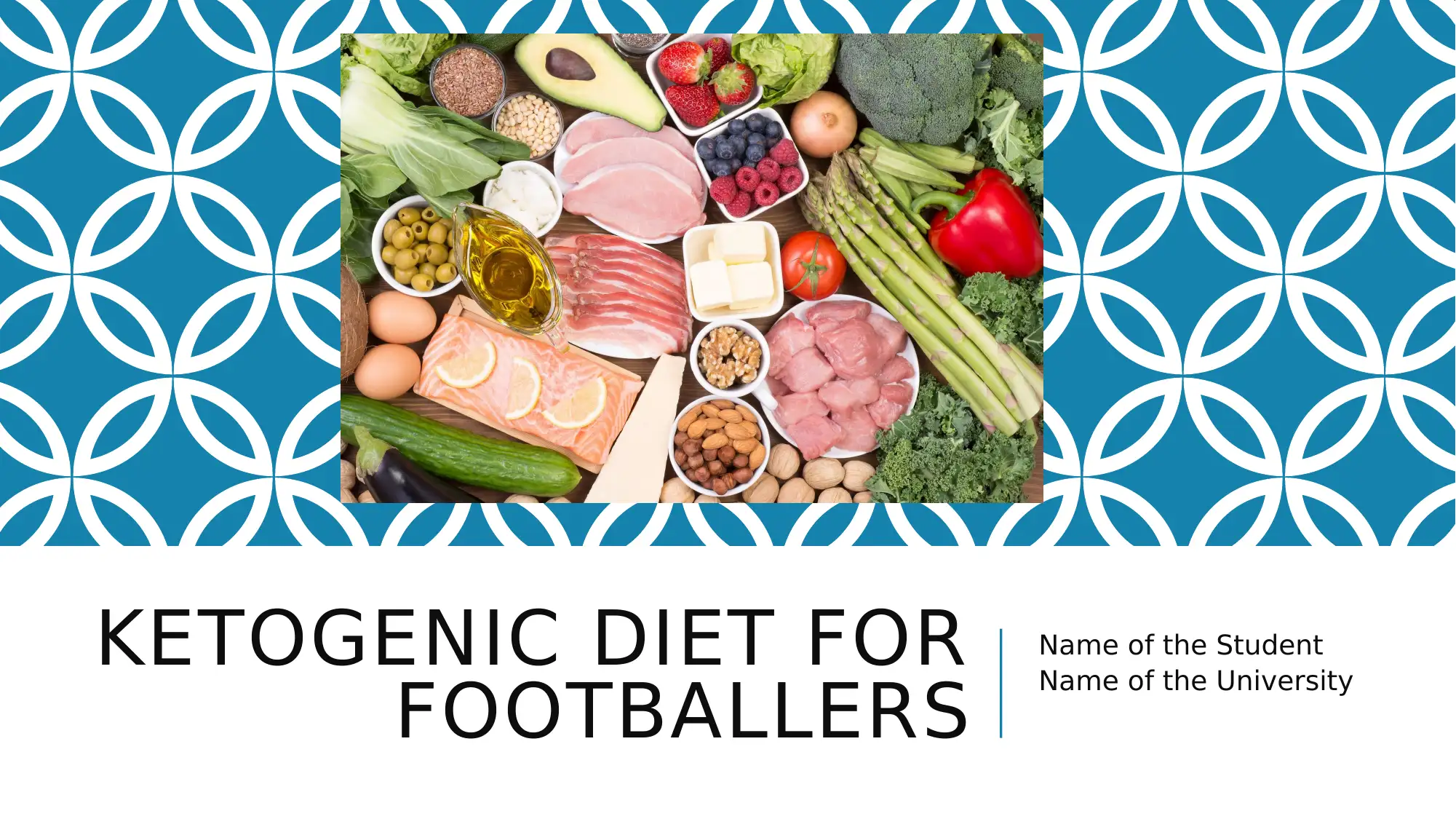
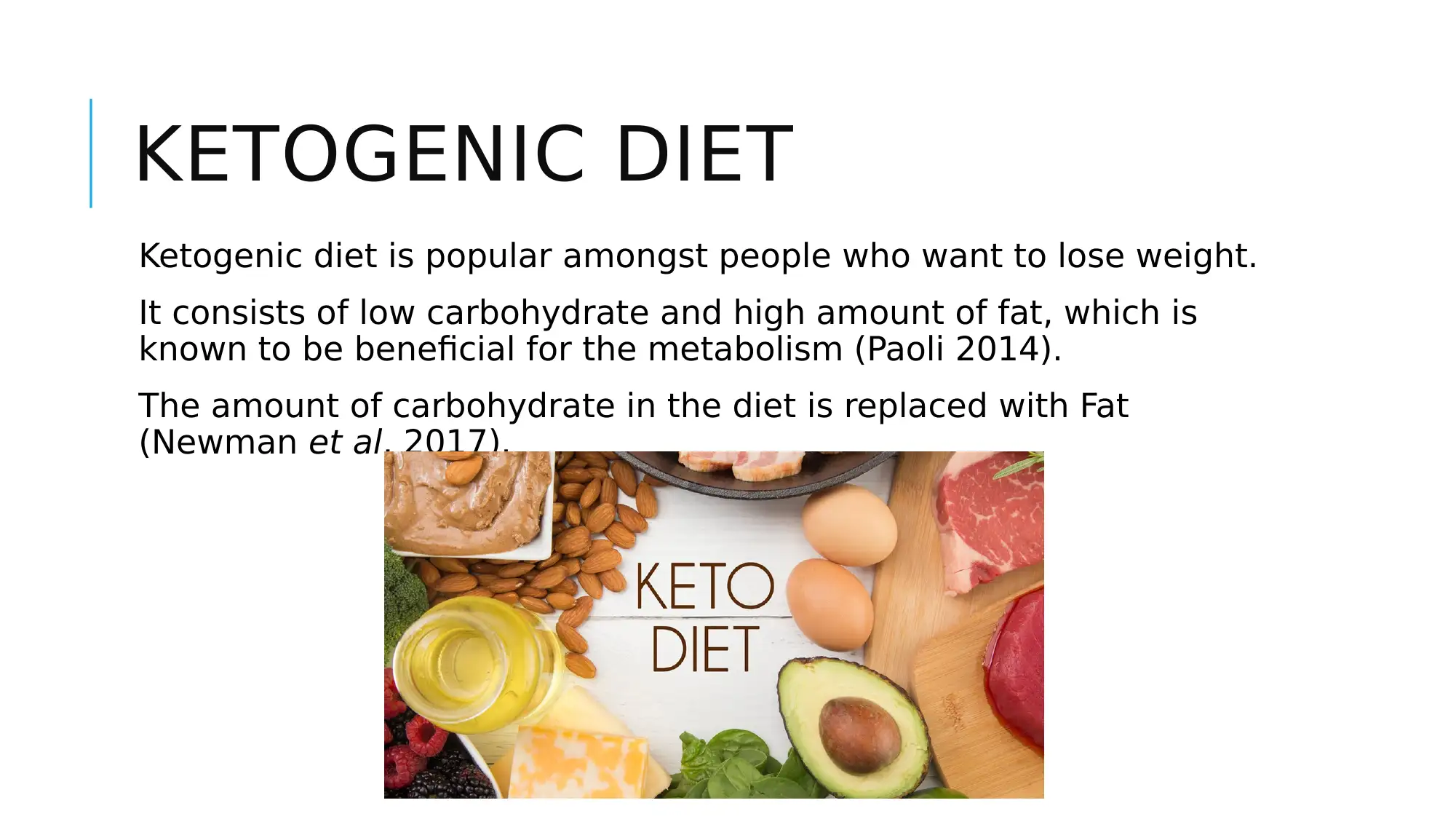


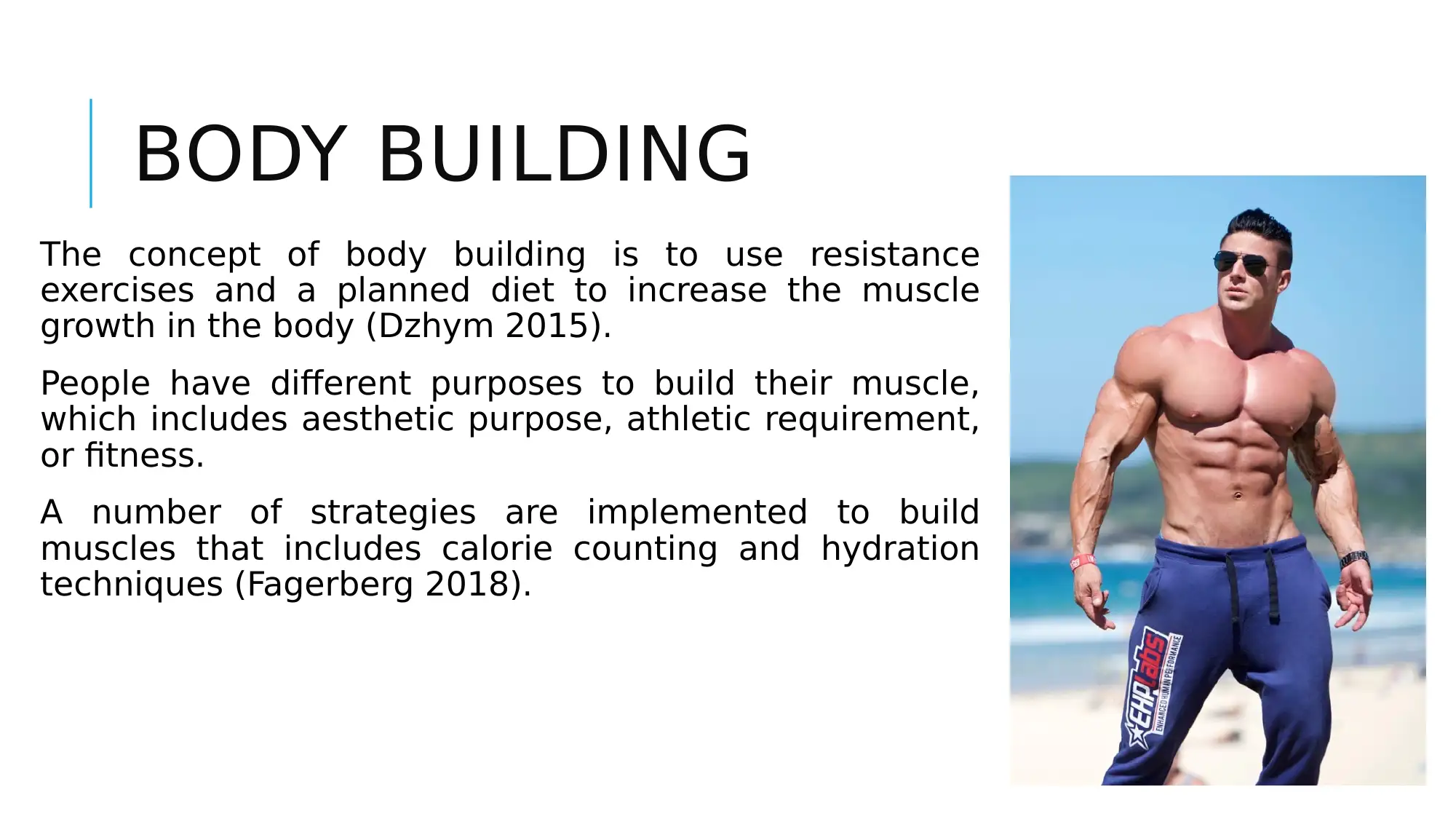
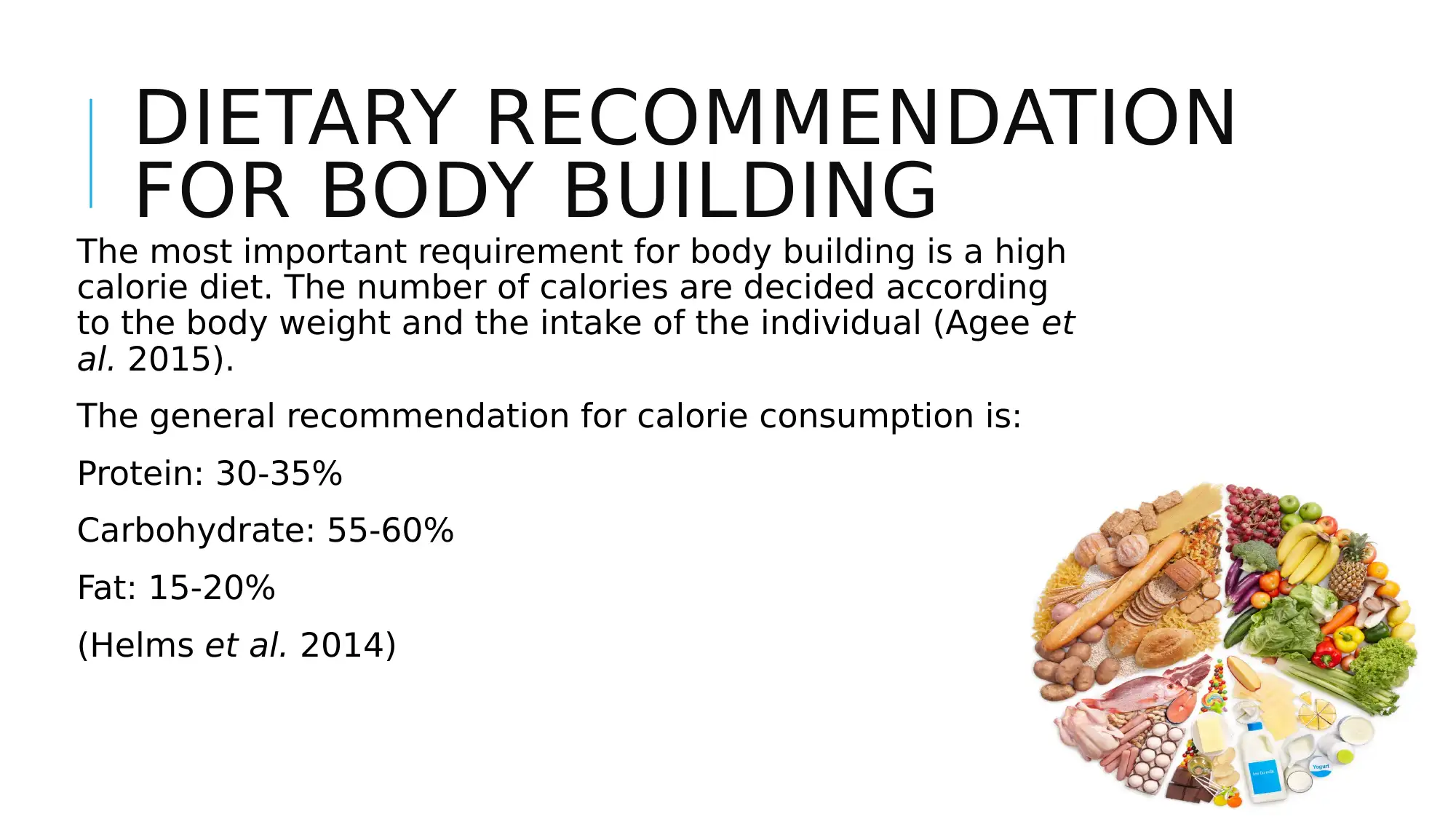
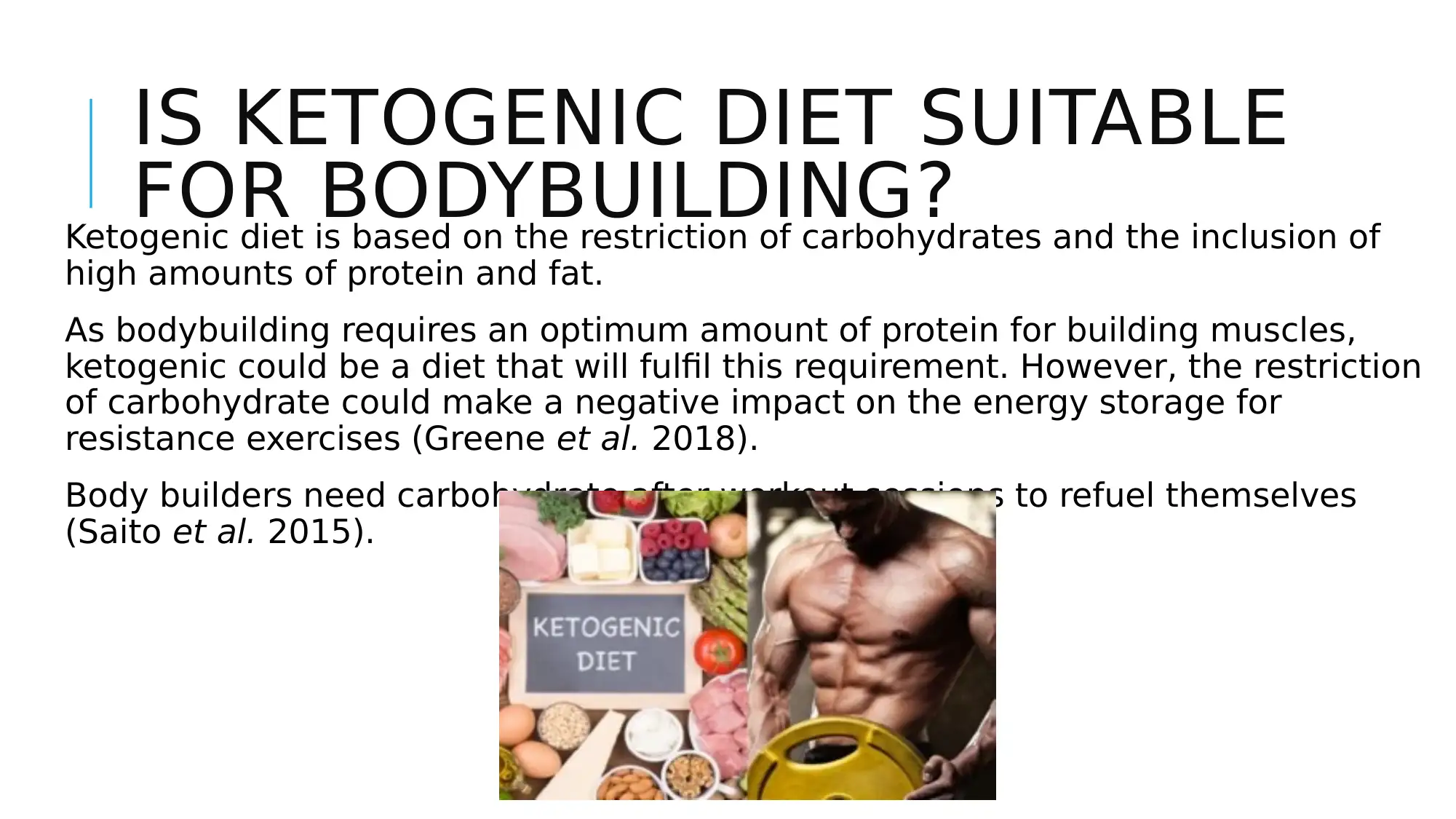
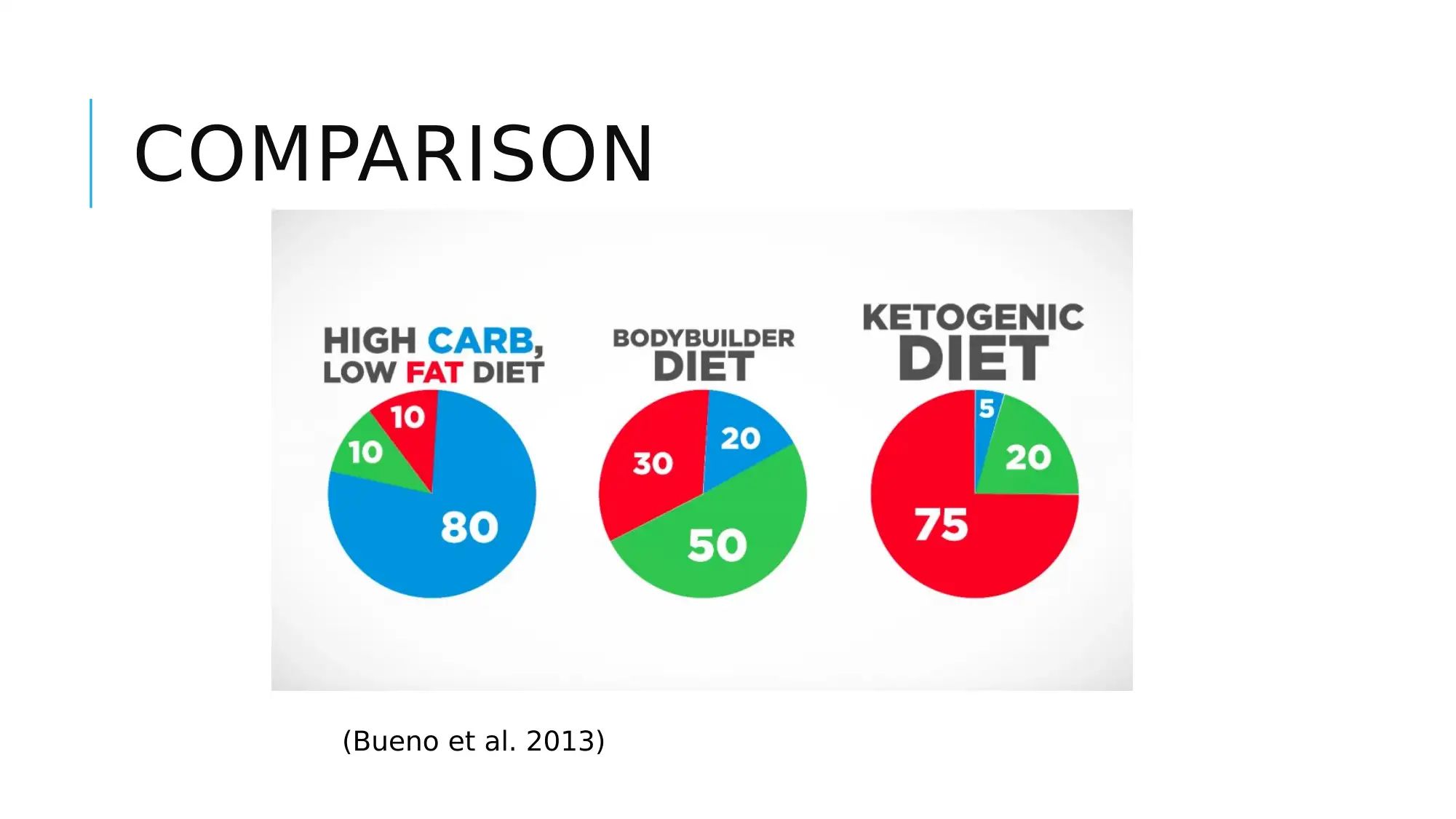
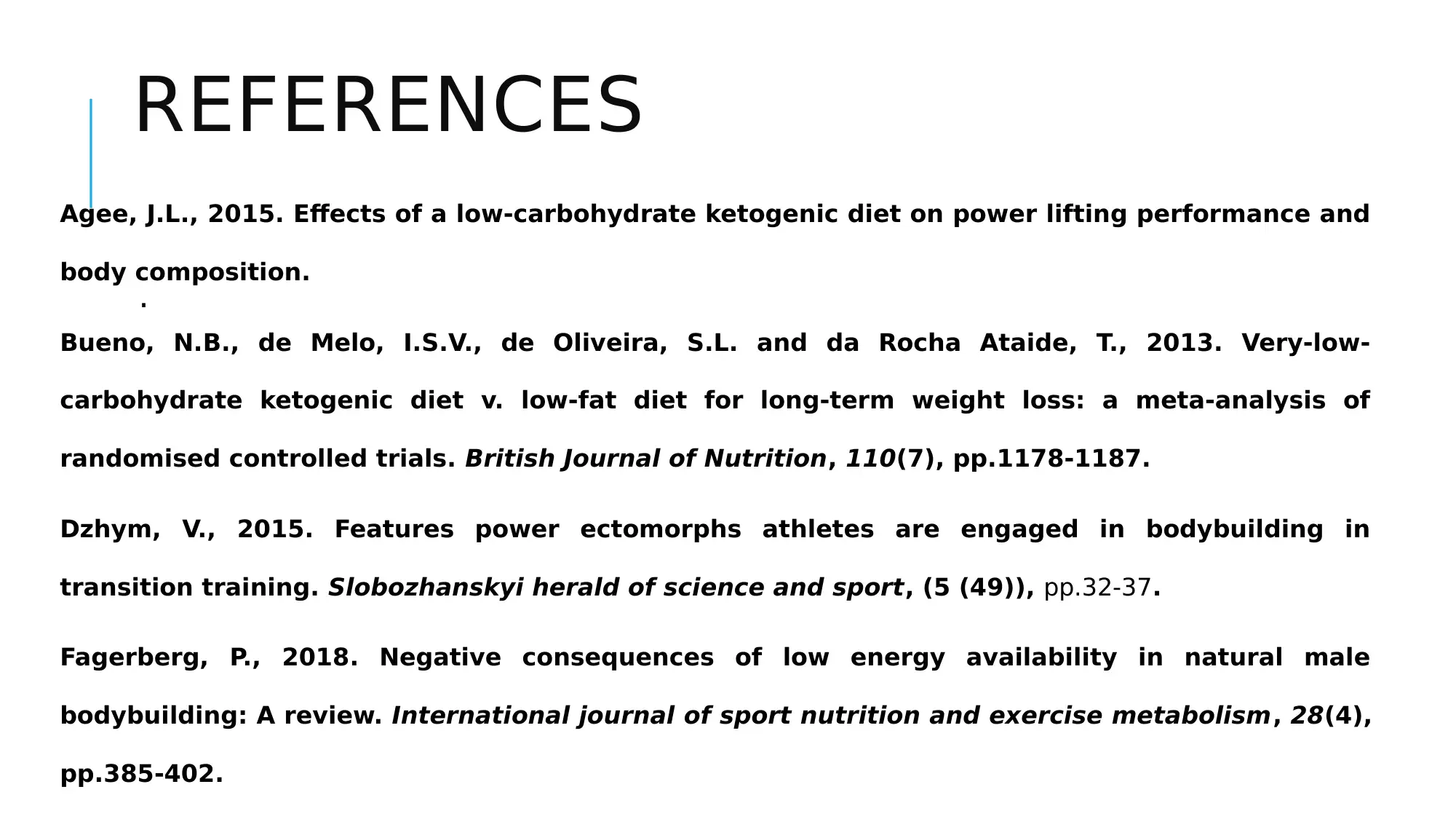
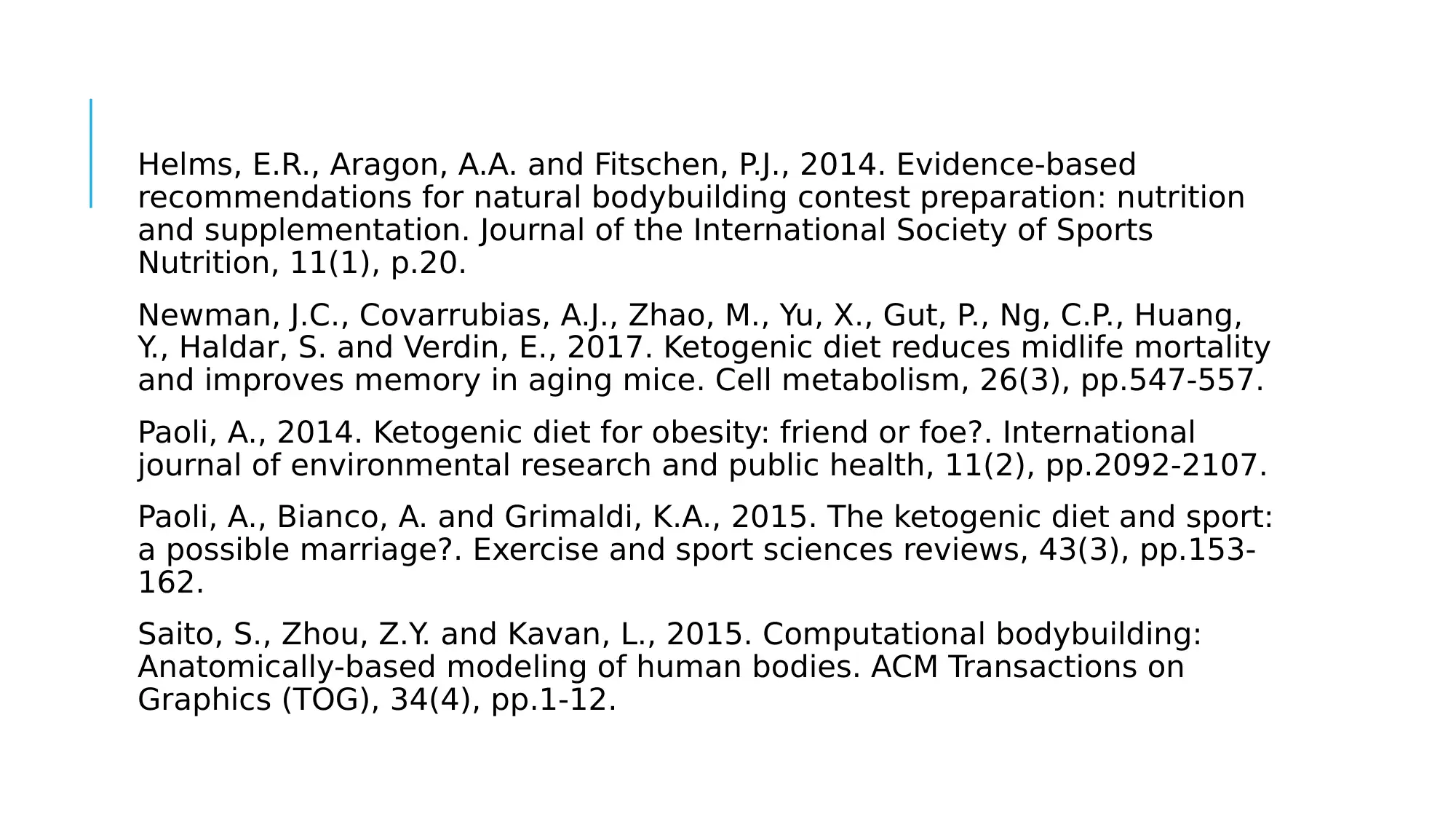






![[object Object]](/_next/static/media/star-bottom.7253800d.svg)